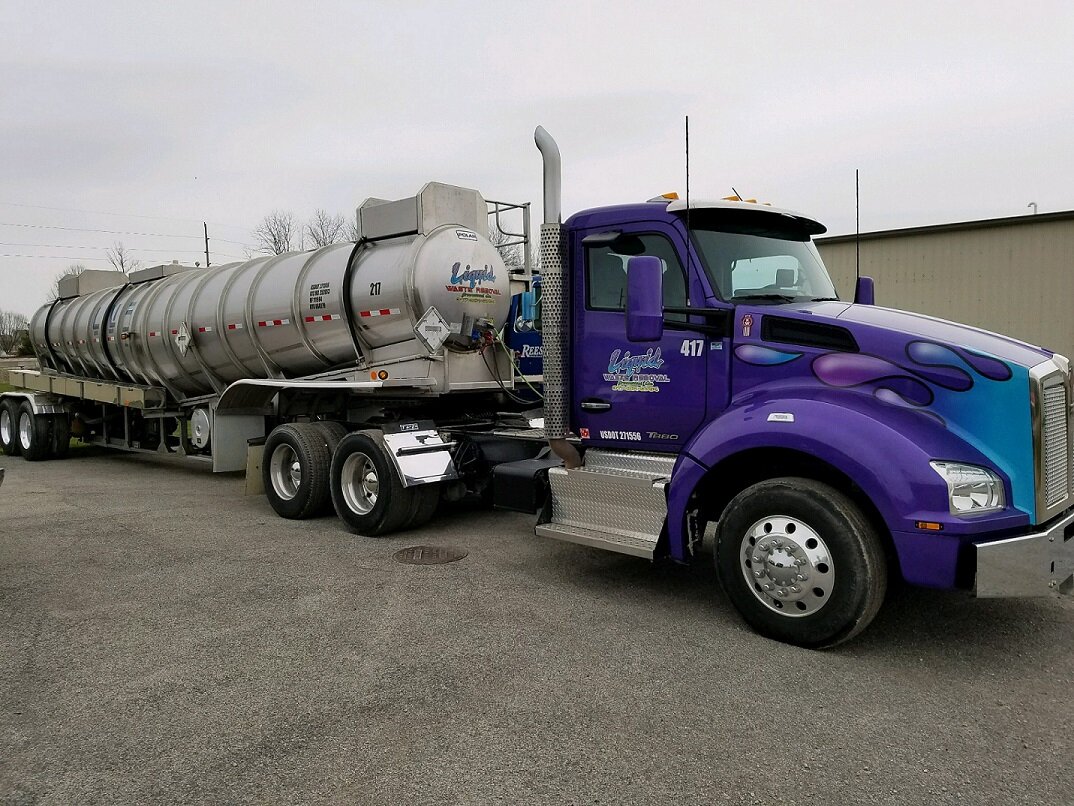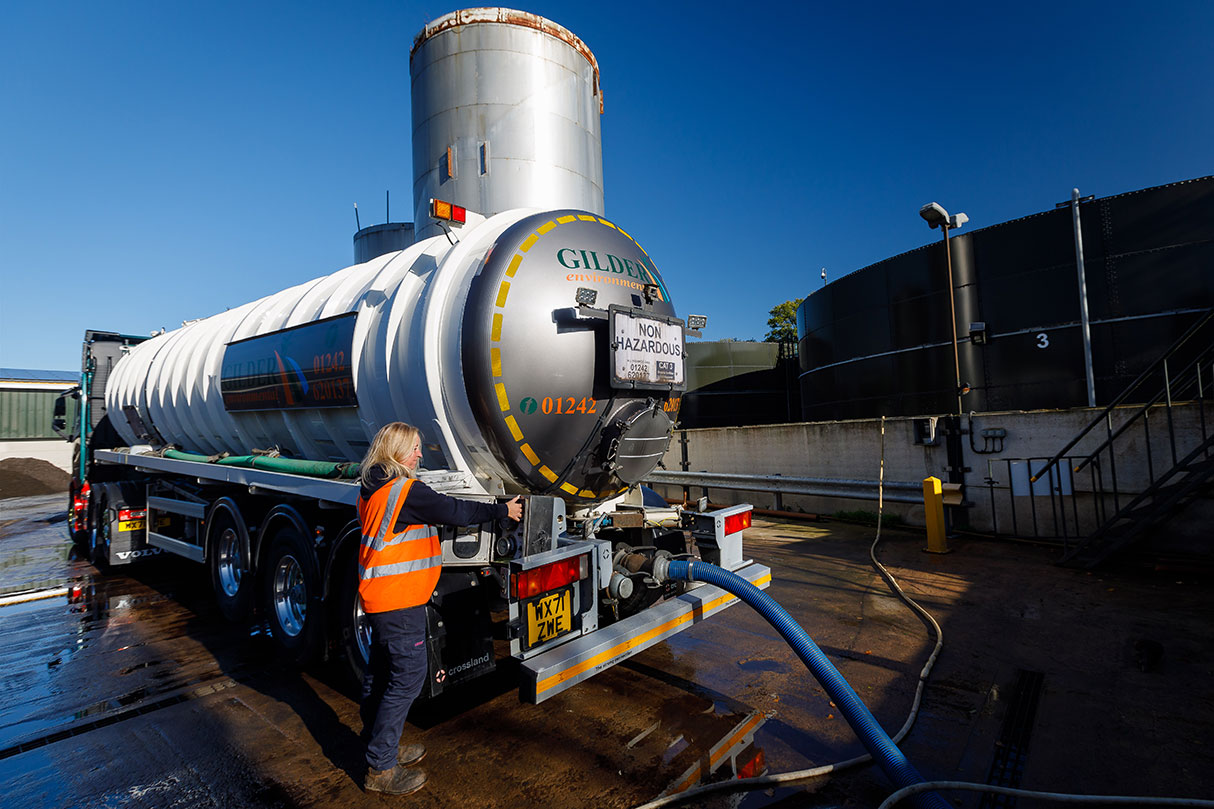Specialist Liquid Waste Removal Melbourne: Quick and Inexpensive Services
Specialist Liquid Waste Removal Melbourne: Quick and Inexpensive Services
Blog Article
Understanding the Comprehensive Refine of Liquid Waste Disposal: Best Practices and Environmental Impact Factors To Consider
The management of fluid waste disposal is a multifaceted issue that requires an extensive understanding of numerous finest techniques and their associated ecological influences. From the types of fluid waste created to the approaches used for collection, therapy, and final disposal, each step plays an important function in safeguarding ecosystems and public health and wellness.
Sorts Of Liquid Waste
Understanding the various kinds of liquid waste is important for effective monitoring and disposal practices. Liquid waste can be extensively categorized right into several types, each calling for special handling and treatment approaches.
Industrial liquid waste often includes hazardous materials, consisting of heavy metals, solvents, and chemicals, produced during making procedures. These wastes necessitate stringent regulative compliance to protect human health and wellness and the environment. Residential liquid waste largely refers to wastewater produced from houses, consisting of sewage and greywater, which, although much less harmful, can still present significant dangers if incorrectly taken care of.
Agricultural liquid waste, consisting of overflow from ranches, often consists of plant foods and chemicals that can result in environmental degradation otherwise dealt with properly. Medical fluid waste, generated from healthcare centers, includes infected fluids such as physical liquids and chemicals, requiring specialized disposal techniques to stop infection and environmental contamination.
Finally, oil and oil waste, normally created by dining establishments and automobile industries, can create severe clogs in sewer systems if not handled correctly. Comprehending these classifications assists in targeted approaches for treatment, compliance with laws, and reliable disposal techniques, inevitably promoting environmental sustainability and public health and wellness safety.

Collection Methods
Reliable collection methods are critical for the appropriate monitoring of fluid waste, guaranteeing that it is gathered securely and successfully prior to therapy or disposal. Different methods are used depending on the type of fluid waste produced, the quantity, and the certain attributes of the waste.
One common technique is the usage of specialized collection containers or sumps, which are created to capture fluid waste at the resource. These systems frequently include pumps that help with the transfer of waste to bigger storage containers or therapy centers. Furthermore, mobile collection devices equipped with vacuum modern technology are used in situations where waste is created periodically or in hard-to-reach locations.
For industrial setups, closed-loop systems can efficiently reduce leakages and spills, enabling for the healing and reuse of fluid waste. It is additionally important to train workers on proper collection methods to minimize risks associated with unsafe substances.
Furthermore, executing normal upkeep routines for collection equipment guarantees optimal efficiency and security. The combination of advanced tracking systems can boost collection effectiveness by giving real-time information on waste levels and potential risks. Generally, efficient collection techniques are fundamental to sustainable fluid waste monitoring methods.
Treatment Procedures
Therapy procedures play an essential duty in the management of fluid waste, changing potentially dangerous products right into secure effluents or recyclable resources - liquid waste disposal. These processes can be generally classified into physical, chemical, and organic approaches, each customized to resolve details pollutants present in the waste stream
Physical treatment techniques, such as sedimentation and filtration, work by eliminating put on hold solids and particulate issue. These methods are typically the very first step in the therapy chain, properly reducing the lots on succeeding procedures. Chemical therapies include the use of reagents to neutralize unsafe materials, precipitate hefty metals, or oxidize natural toxins, therefore enhancing the security of the effluent.
Organic treatment procedures, including turned on sludge systems and anaerobic digestion, take advantage of the all-natural abilities of microbes to deteriorate raw material. These methods are especially reliable for wastewater having eco-friendly toxins. Advanced treatment innovations, such as membrane layer purification and progressed oxidation processes, are progressively utilized to accomplish higher degrees of purification.
Incorporating a mix of these treatment techniques not only guarantees compliance with governing criteria yet likewise advertises environmental sustainability by pop over to these guys recouping useful resources from fluid waste.
Disposal Options
Just how can companies ensure the secure and responsible disposal of fluid waste? Reliable disposal choices are crucial for guarding public wellness and the atmosphere. The primary methods include land incineration, disposal, and therapy adhered to by discharge into metropolitan wastewater systems.
Land disposal includes the cautious containment of fluid waste in assigned garbage dumps, making certain that it does not seep into surrounding soil or water. Incineration, on the other hand, subjects fluid waste to high temperatures, converting it right into ash and gases, which require proper purification to lessen discharges. This approach is ideal for hazardous wastes that can not be dealt with through conventional methods.
In situations where fluid waste can be page treated, organizations may choose for biological or chemical therapy processes to reduce the effects of hazardous parts prior to discharging the treated effluent right into community systems. This route commonly straightens with regulatory needs, guaranteeing that the effluent satisfies security requirements.
Inevitably, companies must perform detailed evaluations of each disposal choice to determine its stability, thinking about factors such as waste structure, regulatory compliance, and potential risks to wellness and the environment. By choosing proper disposal methods, businesses can add to a liable waste management technique.
Ecological Effect
The ecological impact of fluid garbage disposal is a vital consideration for organizations seeking to reduce their eco-friendly footprint. Incorrect disposal approaches can bring about substantial contamination of water sources, soil degradation, and unfavorable impacts on regional ecosystems. As an example, hazardous fluids can leach right into groundwater, posturing threats to drinking water products and water life. In addition, the discharge of without treatment or improperly treated waste right into surface waters can cause eutrophication, resulting in oxygen exhaustion and the subsequent death of fish and various other microorganisms.

To minimize these influences, organizations have to adopt finest techniques such as applying extensive waste treatment procedures, promoting recycling and reuse, and adhering to regulative standards. By taking an aggressive technique to liquid waste monitoring, entities can considerably reduce their environmental impact while sustaining lasting advancement goals. Inevitably, a detailed understanding of the environmental effects connected with liquid garbage disposal is necessary for notified decision-making and responsible stewardship of natural deposits.
Conclusion
Efficient management of liquid waste is critical for protecting ecological stability and public health and wellness. By adopting ideal practices in disposal, treatment, and collection, along with adherence to regulatory criteria, the capacity for hazardous contamination of ecological communities can be significantly decreased. Continual advancements in innovation and procedures add to sustainable waste management efforts. Eventually, a comprehensive understanding of fluid garbage disposal not only reduces ecological influences however additionally promotes a commitment to responsible resource management and ecological stewardship.
The monitoring of fluid waste disposal is a complex problem that needs a detailed understanding of various ideal methods and their linked environmental effects. From the kinds of liquid waste produced to the approaches used for collection, therapy, and final disposal, each step plays an essential duty in protecting my site environments and public health and wellness.The ecological effect of fluid waste disposal is a vital factor to consider for companies seeking to lessen their environmental impact. Ultimately, a thorough understanding of the environmental influences linked with liquid waste disposal is essential for notified decision-making and liable stewardship of natural sources.
Ultimately, a comprehensive understanding of fluid waste disposal not only mitigates environmental impacts however likewise fosters a dedication to liable source administration and environmental stewardship.
Report this page